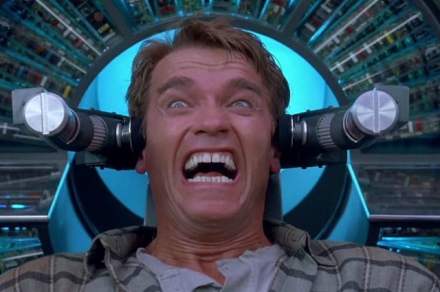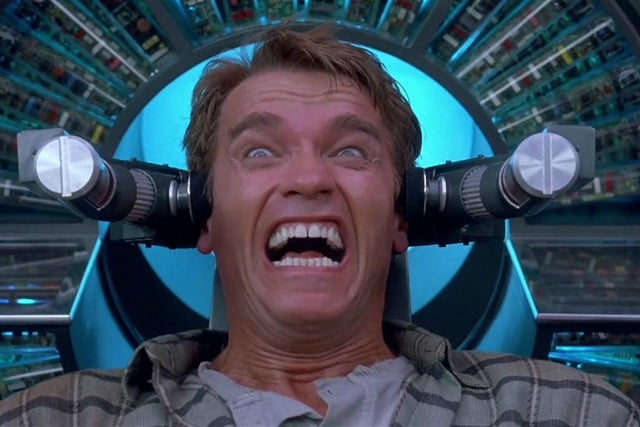
The metaverse: buzzword or major paradigm shift? Right now, there’s probably a bit of column A and a bit of column B. There are certainly companies out there eager to espouse their metaverse strategy (so long as you don’t ask for too many concrete details) because they don’t want to be seen as not having one. At the same time, there are other companies (including Meta, formerly Facebook) that are going full tilt when it comes to embracing this new technology.
According to Meta CEO Mark Zuckerberg, the metaverse will be a virtual version of the Internet in which, “you are in the experience, not just looking at it.” The company is busy working on everything from digital avatars to VR headsets that can detect and relay your facial expressions.
According to Matthew Ball, author of the book The Metaverse, the metaverse is a “massively scaled and interoperable network of real-time rendered 3D virtual worlds that can be experienced synchronously and persistently by an effectively unlimited number of users with an individual sense of presence, and with continuity of data, such as identity, history, entitlements, objects, communications, and payments.”
Got that? If you haven’t – or if, like the rest of us, you’re still trying to wrap your head around what that might look like – don’t worry: Help is at hand. The term “metaverse” might have originated in Neal Stephenson’s 1992 novel Snow Crash, but there are plenty of movies out there that can help shed light on what we might have to look forward to with the metaverse.
Whether it’s depictions of the tech necessary, images of possible virtual worlds, example use cases, or just a look at some of the ethical and technical conundrums we might soon be dealing with, here are seven movies to help you out.
As far as preparing-for-the-metaverse homework goes, this isn’t a bad crash course …
Ready Player One (2018)
Steven Spielberg’s 2018 movie Ready Player One – based on Ernest Cline’s 2011 novel of the same name – is invoked in, at a rough guess, 97.3% of articles trying to explain the metaverse. With good reason, too. At the time the metaverse appeared on the radar of most people – in 2021 when Facebook renamed itself Meta – Ready Player One was a VR-themed movie still fresh in people’s memories.
In Ready Player One, the metaverse stand-in is called “The Oasis” and, as its name implies, represents a rare spot of technologically induced goodness in an otherwise bleak reality for the story’s protagonist. The reason for including Ready Player One here (other than the fact that it’s good to be aware of the reference points everyone else makes in this space) is because of the story’s focus on gaming as a primary purpose for the metaverse. Unlike the internet, which became a core part of the modern gaming experience only later, games are likely to be a big driver of metaverse technologies right from the start.
Today, the closest thing we have to real-world metaverses are the likes of Minecraft, GTA Online, and the spectacular Microsoft Flight Simulator. Due to the size of the gaming market today, and the money it can rake in, expect games companies to be instrumental in helping push the capabilities that will enable a true real-time, synchronous virtual world to be possible. Right now it isn’t. But the opportunity for earning billions of dollars in revenue has a funny way of changing things.
Minority Report (2002)
Minority Report’s inclusion on this list might seem a little surprising. After all, this isn’t a movie based on the concept of virtual worlds at all. But there’s one key moment that makes it qualify. It’s the scene in which Tom Cruise’s character, Chief John Anderton, walks through a futuristic mall, with video screens blaring out personalized adverts addressing him by name.
Personalized ads are, of course, nothing new in the world of 2022 when it comes to the internet. But they’ve largely not extended into the real world. That’s something the metaverse could change, though.
Whether it’s more immersive advertising in virtual worlds (say, as your 3D avatar wanders through virtual shopping malls) or augmented ads superimposing advertisements into the physical world, it seems clear that targeted ads are sure to ramp up in a big way in the metaverse world.
A fascinating recent op-ed by a VR and AR veteran entrepreneur made this case with a call for “immersive rights” for future denizens of the metaverse. Among them? The right to “experiential authenticity” to protect against just this kind of thing. All helpfully predicted back in Minority Report. (Which, incidentally, was directed by Ready Player One helmer Steven Spielberg.)
It’s also great at showing off mixed reality technology in action.
Disclosure (1994)
When you think of Michael Crichton, author of Jurassic Park, chances are that Disclosure isn’t one of the first titles that trips off your tongue. In fact, it actually came out during a career high point for Crichton, when the aforementioned Jurassic Park was ruling the box office, his show ER dominated the TV airwaves, and Disclosure topped the book charts. The movie adaptation, starring Michael Douglas, followed in 1994.
While the metaverse isn’t a heavy theme of the book or movie, the company Douglas’ executive works for is attempting to build a collaborative, real-time virtual world that lets users walk through databases rendered as virtual worlds. The reason for its inclusion on this list is because, despite how dated much of the movie is, the overall hardware setup was pretty spot-on – including haptics, stationary walking platforms, VR goggles, facial expression-tracking technology, and more.
Also, it’s one of the few examples of virtual worlds in a movie being used for workplace productivity, rather than just entertainment.
The Matrix (1999)
When it comes to science fiction movies that influenced the zeitgeist, The Matrix is safely embedded somewhere among the top five in cinema history. But while other big hitters, like 2001: A Space Odyssey, Star Wars, and Le Voyage dans la Lune, focused on the 20th-century dream of space travel, The Matrix zeroed in on cyberspace and the notion of simulated virtual worlds.
In The Matrix, what appears to be reality is actually a simulation of Earth, serving to pacify the humanity that is, in reality, serving as mass batteries for sentient machines. However, virtual worlds are also training grounds that allow Neo, Morpheus, and their vinyl-wearing comrades to practice different abilities.
The Matrix helped articulate these two visions of what massive virtual worlds could mean: an opiate for the masses or a limitless world for refining and improving human potential. The metaverse could be either. We guess it depends if we take the red or blue pill.
Total Recall (1990)
1990’s Total Recall, loosely based on a short story by Philip K. Dick, tells the story of a construction worker who, in essence, takes a holiday from himself: visiting a neuro-tech firm that promises to implant exciting fake memories in his brain, in which the protagonist sees himself as a spy visiting Mars. For our money, the results are one of the best movies in the Arnold Schwarzenegger back catalog.
While the idea of false memories is different from virtual worlds, there’s no doubt that a compelling use-case for the metaverse will be to allow people to lead alternate, parallel existences in massively scaled virtual worlds populated by large numbers of other people. We already see some version of this with MMORPGs and high-grossing games like GTA V in the real world. But this is only going to grow further in the metaverse – especially when you start factoring in widespread VR and the ability to earn a living for yourself inside virtual realms.
It’s not a coincidence that some metaverse pioneers namecheck Total Recall as a source of inspiration in interviews.
Avatar (2009)
Two years before James Cameron’s record-breaking movie Avatar was released, a group called the Accelerating Studies Foundation published a way-ahead-of-the-curve report titled the metaverse Roadmap, outlining what the 3D internet would look like in the far-future year of, err, 2016.
While talk of the metaverse has certainly ramped up in the last couple of years, Avatar arrived at an interesting time in tech history where, as the metaverse Roadmap report makes clear, ideas around this topic were beginning to swell. Second Life was, at the time, making waves as a metaverse of sorts, while the newly launched Google Street View showed us that recreating the world digitally – and then being able to whiz around it at will – was feasible.
Avatar’s plot, in which humans remote-operate alien Na’vi bodies on a distant planet, plugged into many of these circulating ideas. It gave them a futuristic spin, of course, but the theme of virtual embodiment is only going to grow in prominence in the metaverse years to come. And, while Cameron’s movie didn’t create the term “avatar,” it certainly introduced its current usage to a much wider audience.
Free Guy (2021)
As a relatively lightweight comedic movie that views the metaverse through positive, rose-tinted eyes, the visually impressive Free Guy is more of a palette cleanser on this list than a serious lesson in how the metaverse will work.
But if Mark Zuckerberg and others like him can give us a virtual Ryan Reynolds to hang out with, we can only wish them luck in their metaverse ambitions …
Editors’ Recommendations
Credit: Source link


Comments are closed.